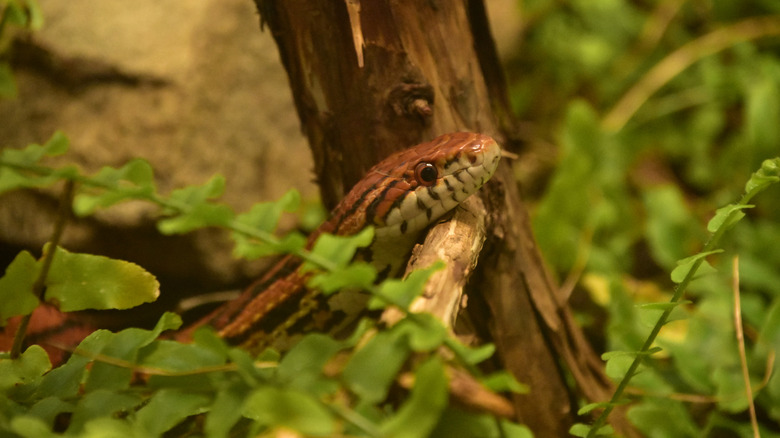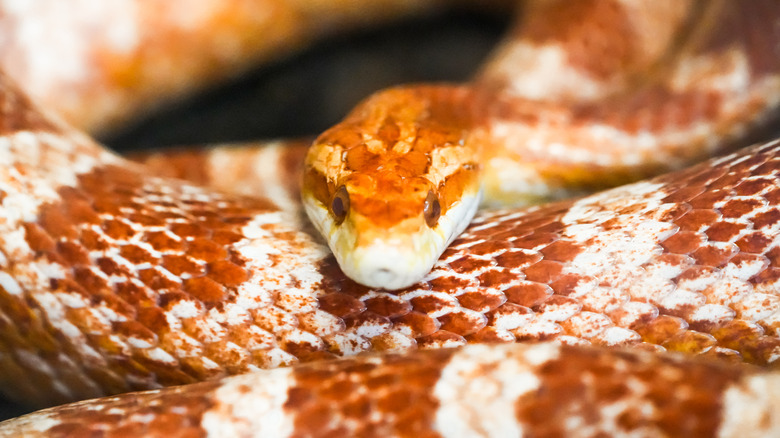The Friendly Garden Snake You Actually Want To Find In Your Yard
Your yard is alive with wild animals. From sing-song birds to mischievous squirrels to — snakes? That's right: snakes are common backyard guests, though their clandestine nature can make it a bit hard to spot them sometimes. If you're squeamish, the fact that snakes may be lying in your yard likely isn't what you want to hear, but it's not necessarily a negative thing. While noticing a venomous species or one of the other snakes you don't want to see in your yard may require the help of a professional for a safe removal, there are some friendly snakes you actually want to find. The corn snake (Pantherophis guttatus) is one of them.
Also known as red rat snakes, corn snakes are a non-venomous species that are common in the Southeastern United States. They sport reddish and brown scales, along with darker blotches, which gives these snakes a unique pattern. While they can grow up to several feet long, which can make them quite intimidating for those with a fear of snakes, they're also shy — they are more afraid of humans than vice versa.
This all explains why finding this friendly garden snake in your yard isn't necessarily dangerous, but it doesn't explain why it's a positive situation. For that, you'll have to look at the corn snake's diet, which is filled with common backyard pests like rodents, which can turn your garden into a buffet.
Benefits of corn snakes — and what to do if you find one in your yard
Corn snakes are carnivores, meaning they get all of their nutrients from eating animals. Mice are at the top of the menu for this snake, though they'll also eat other reptiles, amphibians, and even bird eggs. As a result, if you're struggling with common garden invaders like mice, corn snakes can pose a natural solution to your pest problems.
Although corn snakes are beneficial, you may be wondering what to do if you come across one in your garden. First, don't panic. You'll want to be sure you can accurately identify the species (from afar, of course) before making any decisions. With their coloration and size, corn snakes can easily be mistaken for other species, including venomous ones. Once you're sure you have a corn snake on your hands, give them plenty of space. Even non-venomous snakes can bite when threatened, and handling them directly can do more harm than good to both parties involved. If you choose to, depending on your situation and where you live, it may be safe to simply go about your day and leave the snake alone. You will continue your outdoor project, and the snake will stay busy keeping mice out of your garden. However, another option is to contact a professional to relocate your scaly friend to a safer spot. If, after learning the benefits of these slithery creatures, you're still not a fan, you can learn how to deter snakes from your yard.

